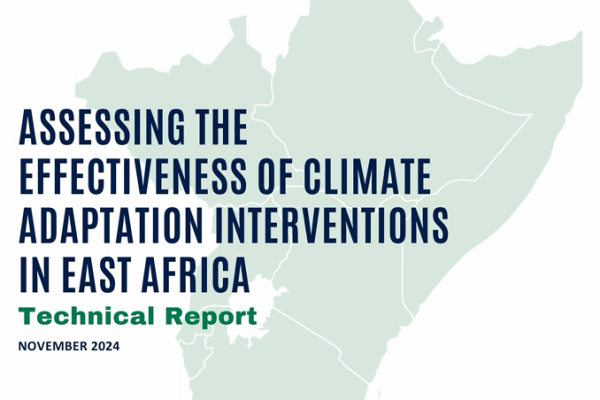Executive Summary
Kenya is one of the many SSA countries facing a formidable clean cooking challenge. The majority of the population (81%) still relies on polluting fuels such as firewood (65%), charcoal (10%), and kerosene (6%) for their cooking needs (GoK,2019). This has led to an array of interlinked development challenges: GoK (2019) estimates that in Kenya, 21,560 deaths/yr are caused by household in-door air pollution; 8-11Mton/yr. woody biomass is lost due to forest degradation, and 13.6 MtCO2e/yr is emitted. Women and girls are disproportionately affected, with greater exposure to cooking smoke, as well as the drudgery of collecting fuel and lighting/tending fires, which results in missed educational and economic opportunities. There is a potentially transformative opportunity for Kenya’s clean cooking sector to break out of this ‘business as usual cycle’ with electric cooking. On the one hand, the country has experienced increased connection to the electricity with three-quarters of the population now connected to some form of electricity but doesn’t yet use it to meet most of their cooking needs. On the other hand, the country has an ambitious clean cooking target i.e. achieving universal clean cooking by 2028. As such, there is a growing need to connect the clean cooking ambition and the new opportunities in the electrification sector through the promotion of e-cooking.
Through engagement with clean cooking stakeholders in Kenya, e-cooking policy research, policy dialogues and opening up of e-cooking information hubs, the implementation of the MECS Kenya programme over the last 2-3 years reveals that Kenya’s domestic policies are advocating for expanded access to electricity and its utility. The e-cooking agenda is now part of the National Government policy agenda- being promoted through the e-cooking National strategy as part of wider National clean cooking strategy and National Integrated Energy Plan. Similarly, Kenya’s revised NDC recognised the role of clean cooking in climate change mitigation and adaptation with very strategic opportunities for e-cooking. While the e-cooking policy ecosystem is developing fast across sectors, the market ecosystem in also slowly progressing but still faces the challenge of underdeveloped value chain, financing, and general market awareness.
The MECS Kenya programme established the e-cooking hubs in four counties including Nairobi, Kisumu, Makueni, and Kitui and these are proving to provide strategic opportunities to develop e cooking ideas from the supportive policy frameworks to actual adoption by different community groups. Additionally, these hubs are strategic in catalysing e-cooking awareness, technology and financing support thus promises to enhance the e-cooking markets and value chains from the grassroots and in an inclusive fashion. The demand stimulated through these hubs is also enhanced learning and exchange across context as emerging e-cooking champions actively begin to spearhead e-cooking agenda in their respective regions and create learning. Based on this learning, other counties are now beginning to replicate the model e.g., Kakamega county in the process of establishing its own e-cooking hub to promote e-cooking in the western region/counties. As part of supporting the grassroots e-cooking agenda, some counties have now started mainstreaming the e-cooking in their planning. For example, Makueni and Kisumu counties are planning to allocate resources to promote e-cooking through the third-generation integrated development plans (CIDPs).
The MECS Kenya programme has also succeeded in establishing an integrated e-cooking community of practice- working closely with the Kenya Power and Lightening Company and the Clean Cooking Alliance. This has enhanced a good working relation between stakeholders working in the clean cooking and electrification sector thereby strengthening a collective voice towards national policy change- an outcome that is currently anchoring the upcoming National e-cooking strategy.
Despite successes in strengthening the e-cooking policy agenda at national level, planning at county level, and stimulating consumer demand though awareness creating platforms (hubs), the linkage with the e-cooking appliance companies remains relatively weak. Most companies such as have continued to focus on established markets and still face challenges of venturing in the new markets in the counties due to uncertainty in financial models, lack of adequate e-cooking infrastructure among others. There is need to establish strategic Public-Private Partnerships (PPPs) focused on developing affordable and pro-poor financial and technological models for e-cooking that can then be deployed through the hubs to stimulate adoption and e-cooking markets interactions and take advantage of the huge and promising grassroots market and supportive policy environment. Additional studies to identify these opportunities are needed to take MECS to the next level.



